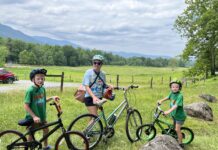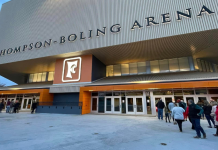 The human library concept originated from a Danish social experiment in 2002 and has gained popularity across more than 50 countries. Its purpose is to challenge stereotypes while reducing public- and self-stigma related to disability, culture, ethnicity and religion. Rather than books being borrowed from a library, humans are made available to share their story with listeners who want to openly discuss taboo topics in a safe space.
The human library concept originated from a Danish social experiment in 2002 and has gained popularity across more than 50 countries. Its purpose is to challenge stereotypes while reducing public- and self-stigma related to disability, culture, ethnicity and religion. Rather than books being borrowed from a library, humans are made available to share their story with listeners who want to openly discuss taboo topics in a safe space.
So what is a busy mom supposed to do with this information?
Human libraries have grown and morphed to meet the needs of groups (big and small) for both educational and entertainment purposes. Speakers meet with listeners in one-on-one situations or small groups. The speaker shares a story related to the desired topic and engages in Q&A from the listener(s). If there are multiple speakers available, listeners rotate around to hear a variety of perspectives. This can be done in-person or via Zoom.
Here are a few examples of how women may effectively create and utilize a human library for personal or professional reasons:
- Classroom teachers: Are you covering a subject in history class? Reading a book in language arts? Invite a group of older people who were around or involved during specific historical events to address the class in breakout groups or invite a guest who shares the same role as a character in a novel (e.g., Native American, detective, athlete) to bring the story to life.
- Churches: Invite members of the community who have experienced hardships, such as homelessness, addiction, disability, spiritual crises, abuse, etc. Encourage members of the church to engage in meaningful dialogue to reduce preconceived notions and inspire acceptance or create a library of missionaries who might share their experiences abroad with those who are considering a similar path.
- Human resources: Offer the human library as a source of corporate sensitivity training to improve social understanding, rid discrimination and prevent conflicts. Open discussions without fear of condemnation in 1:1 or small group settings may lead to a more cohesive workforce.
- Book clubs: Are you reading a historical novel? A story from another culture? Invite a few guests who relate to the book’s time, setting or character to share their experience. Enrich the book’s subject matter by engaging individuals in dialogue related to events in the story. This works for fiction and non-fiction.
- Neighborhood nights: Do your children lack understanding of a world before cell phones and laptops and iPads? Invite older people in the neighborhood or grandparents to come out for a night to share their stories with kids on the block. Create little stations where kids rotate to hear stories from two or three speakers who will undoubtedly start each tale with “Back in my day…” Parents may join or sneak off for a glass of wine while the two generations bond.
- “Awareness Day” events: Are you part of an organization that brings awareness to a disease or disorder? Do you want to spread the word and give people a better understanding of its impact on life? Do you strive to help people who share a common challenge make connections? Host a human library event to allow people meaningful, deeper discussions about living with a particular condition. For example, on International Stuttering Awareness Day, my organization hosted an international human library for people who stutter. The same could be done for autism, cancer, addiction, stroke, Alzheimer’s, etc. No need to go international! Having just a few speakers and a few listeners can make a world of difference for those involved. Consider using an actual library for your event’s location.



















